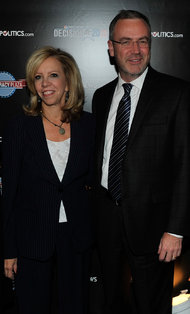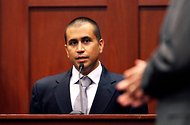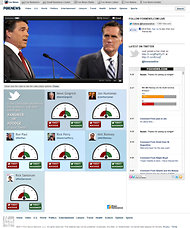ABC’s evening newscast, “World News With Diane Sawyer,” bested the longtime leader, “NBC Nightly News With Brian Williams,” among 25- to 54-year-old viewers last week, ending a nearly five-year-long streak by NBC and renewing interest in the once-predictable ratings race.
“NBC Nightly News” remained No. 1 among total viewers, which is traditionally the bragging rights category in television. But ABC’s win is significant because television ads on news programs are bought and sold based on the coveted age group of 25- to 54-year-olds. Ms. Sawyer has been seeking to snap Mr. Williams’s streak in that category for years.
For ABC, it was a narrow victory: just 38,000 viewers ages 25 to 54 separated the two shows. Partly for that reason, people at NBC News cautioned that ABC’s evening show victory could be a one-time aberration. Last spring and summer, though, those same people saw their prized morning show “Today” fall to second place behind ABC’s “Good Morning America,” first in total viewers and then in the 25- to 54-year-old demographic. The “G.M.A.” streak is now nearly one year old.
As is the custom in these bitterly contested ratings competitions, NBC’s news release about the ratings made no mention of ABC’s gains; it simply excluded the 25- to 54-year-old viewership totals and emphasized that “Nightly News” has been winning among total viewers for years. “We are grateful for another consecutive win in total viewers and are focused on producing the best newscast for our audience,” an NBC News spokeswoman said Tuesday morning.
Among total viewers, “Nightly News,” which had an average of 7.54 million viewers last week, beat “World News” by about a quarter of a million. Among viewers ages 25 to 54, “Nightly” had about 1.88 million, 38,000 fewer than “World News.”
ABC said this was its first win since the week of Nov. 17, 2008, shortly after the election of President Obama.
The victory is shared between Ms. Sawyer, who has been the anchor of “World News” since 2009, and David Muir, one of her principal fill-ins. Last week Ms. Sawyer anchored on Monday and Tuesday while Mr. Muir anchored the rest of the week. Mr. Muir and another ABC anchor, George Stephanopoulos, are widely seen within the television industry as the two possible successors to Ms. Sawyer.

Article source: http://www.nytimes.com/2013/07/31/business/media/abcs-evening-news-bests-nbc-in-coveted-age-group.html?partner=rss&emc=rss



